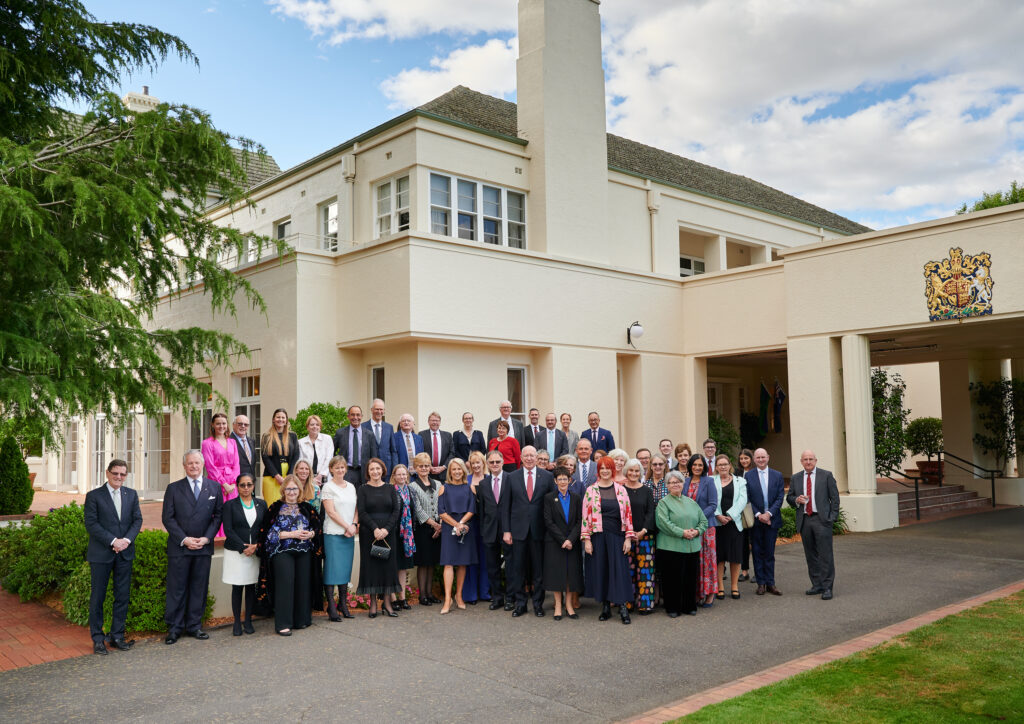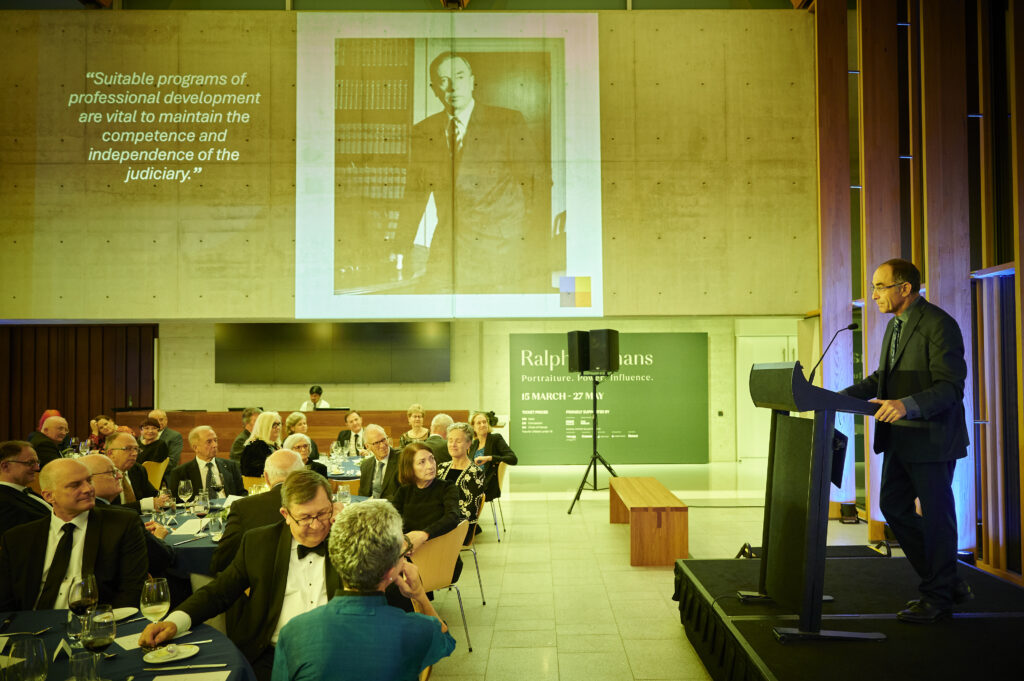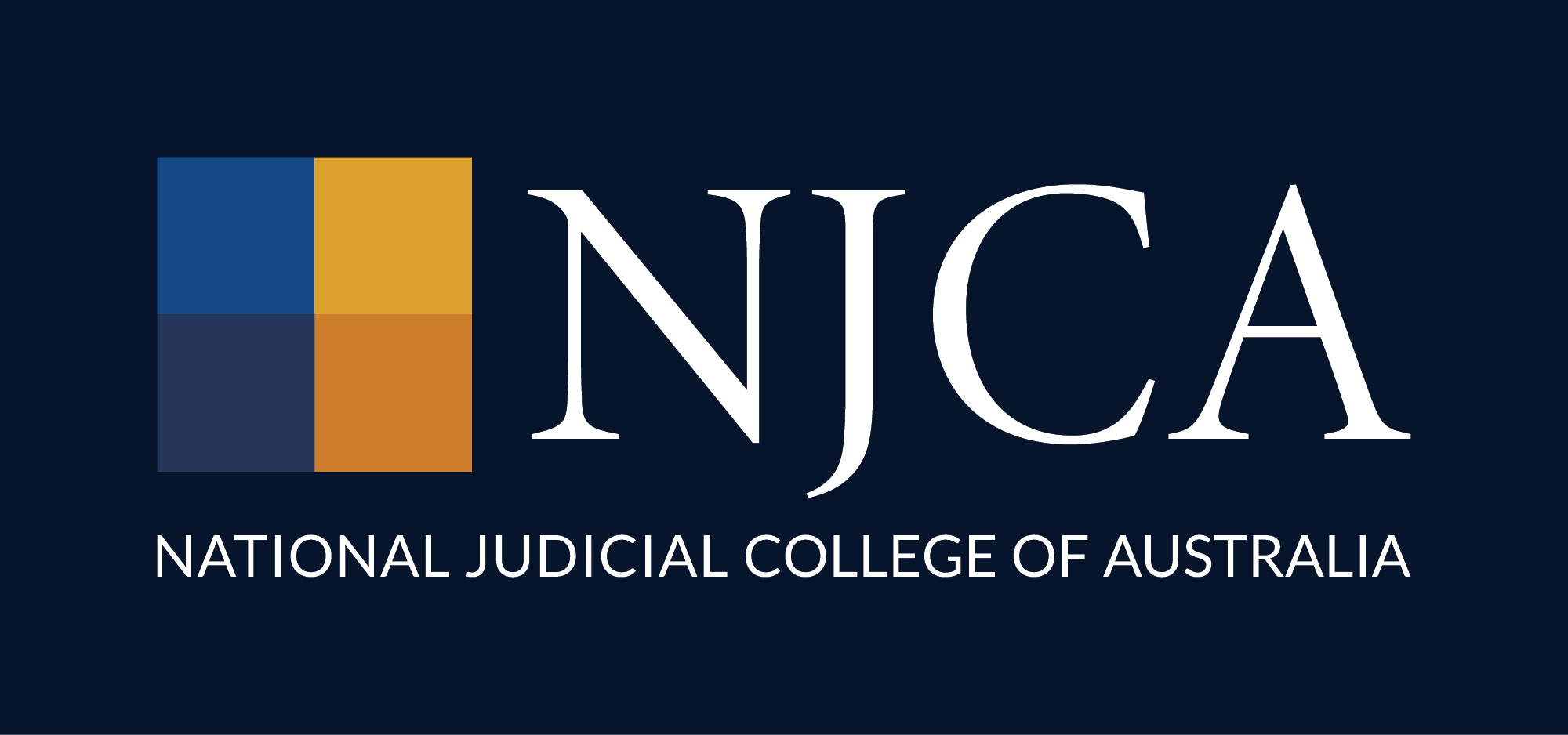Leading judicial education for an Australian judiciary
The National Judicial College of Australia (the NJCA) is an independent, not-for-profit entity, incorporated as a company limited by guarantee. Since its inception in 2002, the NJCA has designed, developed and delivered judicial education and training programs for Australian judicial officers across all court hierarchies and jurisdictions.
Our judicial education encompasses four core dimensions of judicial learning: substantive and procedural law, judge-craft skills, social context and judicial attitudes and values. We work with Australia’s judicial officers and leading subject matter experts across the country, providing judicial education that makes a difference.
Our programs are comprehensive, consistent, systematic, and of the highest quality. Central to our program design and evaluation process is the implementation of judicial education and training that is dynamic, able to respond to a uniquely changing and increasingly diverse Australian society and to developments in judicial responsibilities. We constantly map contemporary judicial learning outcomes alongside the development of programs to ensure the focus is on nationally consistent training programs that harness the confluence of interests of an integrated Australian judiciary.
Through our delivery of a wide ranging suite of programs, the NJCA strives to foster and encourage powerful and transformative jurisdictional, cross-jurisdictional and trans-jurisdictional discourse, critical to the furtherance of public confidence in an Australian judiciary that understands the people that come before it.

A Brief History of the National Judicial College of Australia
During the 1990’s, calls were made for the establishment of a body to provide judicial education for the whole of the Australian judiciary. The establishment of such a body was supported by, among others, Sir Anthony Mason, a former Chief Justice of the High Court and by the then Chief Justice, Chief Justice Gleeson, as well as by the Australian Institute of Judicial Administration.
It was agreed that a truly national college would ensure that education for judicial officers was of increasing quality and would avoid duplication. Judicial officers from across jurisdictions and from different geographical regions would have the opportunity to exchange information and experiences. This, it was argued at the time, would maximize the benefit derived by judicial officers and by the wider Australian community from judicial education programmes. Moreover, there was the need, in relation to the provision of judicial education and training, for the establishment of a national judicial college that would bring Australia into line with developments in other common law jurisdictions .
The next significant driver for the formation of the NJCA was the result of findings in an ALRC Report in 2000 entitled “Managing Justice, A Review of the Federal Civil Justice System”. Recommendation 8 of this report expressly proposed the establishment of an Australian Judicial College, with a governance structure under the control of the judiciary. Furthermore, the recommendation went on to say that such a College was to have formal responsibility for meeting “the education and training needs of judicial officers.”
In March 2000, the Standing Council of Attorney-Generals endorsed a proposal by the federal Attorney-General to form a Working Group to consider the establishment of a National Judicial College. The Working Group, in setting out the case for a College, drew conclusions that somebody or bodies should have responsibility for ensuring the availability of appropriate and timely professional development programmes. A College would fulfil that function. Importantly, it found that a College would also be a tangible symbol of judicial education, reminding judicial officers, government and the general public that judicial education is part of judicial life for which public resources must be made available. This could only serve to enhance the professionalism of judicial officers and public perceptions of that professionalism. From the recommendations, from both the ALRC report and the resulting Working Group, the NJCA was finally established in 2002.
Undeniably, the judicial education landscape in Australia is now changed. We have just celebrated our 20th anniversary.
Supporting the Quest for Judicial Excellence
Judicial education is essential to the effective administration of justice and in turn, the preservation of public confidence in our courts. Judicial education supports judicial independence, fosters discourse, strengthens the operation of the judicial function, judicial reasoning, decision making and judgment writing.
The original drivers pertinent to creation of the NJCA remain as integral to our remit today as they did over 20 years ago. We continue to evaluate and further refine our flagship programs and to develop new programs that support the judicial pathways pertinent to all judicial officers, regardless of their time on the bench.
Our judicial officers are lifelong learners and therefore a pathway of judicial learning is essential to preservation of judicial excellence and judicial independence. While the Australian landscape of judging is forever changing and increasing complex, the NJCA supports the quest of all Australian judicial officers to maintain a steady commitment to career-long judicial education and training.

Contemporary Program Design, Development and Delivery
NJCA judicial education and training programs are judge-led, reflect contemporary adult learning principles, are judicial officer centric in design and carry an experiential learning philosophy. Our programs provide participants with an appropriate balance of knowledge and understanding, alongside practical judge-craft skills, achieved through structured, small group discussion and hands-on practical exercises relevant to the program rationale and judicial learning outcomes.
The NJCA, as part of its overarching program development, published Attaining Judicial Excellence: A Guide for the NJCA in 2019 as a resource to support its strategic planning and to assist in designing professional development programs for Australian judicial officers. In developing the elements, the NJCA consulted with 80 judicial officers from around Australia and from different jurisdictions. These elements describe the knowledge, skills and qualities of judicial officers, which those consulted, consider to be facilitative of judicial excellence. A copy of the guide is available under our resources.









